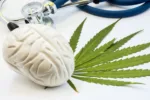The Rise of “Gas Station Heroin” and Why Seeking Treatment is Crucial

In recent years, a dangerous substance known as “gas station heroin” has gained attention due to its availability, potency and potential for serious health consequences. Despite the nickname, this drug isn’t actually heroin — but its effects can be just as harmful, if not worse. The rise of gas station heroin highlights the growing need for awareness and accessible treatment options for those struggling with substance use.
What is Gas Station Heroin?
Gas station heroin is a street term for a substance called Tianeptine, a drug that is often marketed as a dietary supplement or mood enhancer. Tianeptine is sold under various brand names like Zaza Red and Tianna and is readily available at gas stations and convenience stores as well as online. While Tianeptine is used as an antidepressant in some countries, it is not approved for medical use in the United States due to its potential for abuse and addiction.
Tianeptine affects the brain in a way similar to opioids. It binds to opioid receptors, producing feelings of euphoria, relaxation and pain relief. Because of these opioid-like effects, it carries a high potential for misuse and addiction. Over time, individuals can develop a dependence on Tianeptine, leading to withdrawal symptoms and cravings when the drug is not available.
Why Is It Dangerous?
The main concern with gas station heroin is how easy it is to obtain and how powerful its effects can be. Since Tianeptine is sold as a supplement rather than a controlled substance, it bypasses many regulations that typically apply to pharmaceuticals. This means that individuals can purchase it legally without a prescription — and without knowing the full extent of its dangers.
The opioid-like effects of Tianeptine can lead to overdose, respiratory depression and even death, especially when combined with other substances like alcohol, benzodiazepines or opioids. Reports of Tianeptine-related emergencies have been increasing, with cases of severe withdrawal symptoms, psychosis and cardiovascular issues becoming more common.
Signs of Gas Station Heroin Addiction
Because of its opioid-like properties, the signs of Tianeptine addiction mirror those of opioid addiction. Some common signs include:
- Increased tolerance (needing more of the substance to achieve the same effects)
- Intense cravings and compulsive use
- Withdrawal symptoms such as anxiety, sweating, tremors and nausea
- Social withdrawal and changes in behavior
- Financial or legal issues related to obtaining the drug
If left untreated, Tianeptine addiction can lead to serious health complications and increase the risk of overdose.
Why Seeking Treatment Is Essential
Recovering from gas station heroin addiction requires more than just willpower — it demands comprehensive, evidence-based care. Since Tianeptine affects the brain’s opioid receptors, withdrawal symptoms can be intense and challenging to manage alone. Professional treatment provides the medical and psychological support needed to navigate withdrawal and establish long-term recovery.
At Silvermist, we offer personalized addiction treatment programs designed to address the unique needs of each individual. Our programs include:
- Medically supervised detox – Safely managing withdrawal symptoms under the care of experienced professionals
- Residential treatment – Providing a structured environment where individuals can focus on healing and rebuilding their lives
- Therapy and counseling – Including cognitive-behavioral therapy (CBT), individual and group counseling and trauma-informed care
- Medication-assisted treatment (MAT) – Using FDA-approved medications to reduce cravings and prevent relapse
- Aftercare and relapse prevention – Ongoing support to help individuals maintain sobriety and build a strong recovery foundation
Take the First Step Toward Recovery
Gas station heroin is a dangerous and rapidly growing threat, but recovery is possible with the right support. If you or a loved one is struggling with Tianeptine addiction, Silvermist is here to help. Our compassionate team of professionals is dedicated to guiding you toward a healthier, drug-free life. Don’t wait until it’s too late — reach out today and take the first step toward lasting recovery.






